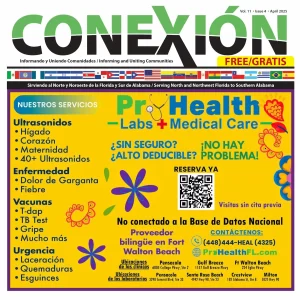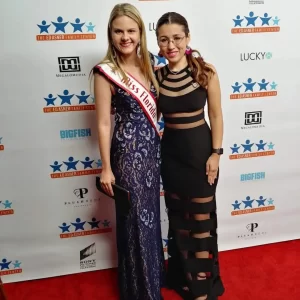Being Bilingual
By Paola Diaz
We know that language connect us with the world therefore, we can say that bilingualism give us the opportunity to have a double connection with the world and influences the way we connect one another.
Being bilingual refers to being able to speak another language different than the native. But, is this about what we know about the language or how we use the language to complete a task through effective communication regardless errors on grammar structure or pronunciation?
According to ACTFL (American Council on the Teaching of Foreign Language) the root of proficiency when speaking another language is based on the effectiveness when using the language and in this way to complete a task. In other words, it is what you can do with the language. Consequently, we can say that being proficient in another language, confers the ability to interrelate effectively with others and facilitates stronger global connections not only in the business world but, in communities that are more sensitive to differences and skilled in conflict resolution through communication.
There levels that define proficiency or the effectiveness in communication with acceptable mages of error for each level (ACTFL). Therefore, do not worry about having accent or making mistakes in your sentence structure. Instead, pay close attention of what you can do with the language (linguistic task). For instance:
For a beginners level: In the target language: Can you meet & greet people and provide basic information? Can you describe people and places? Can you do a basic transaction such as: buy groceries or clothing, make or cancel an appointment? Can you make a reservation or rent a car? Can you provide basic directions or instructions? Can you complete all of the above using complete sentences in the target language?
For intermediate level: Can you do all of the above but, speak in paragraphs using transitions and connector words? Can you report on current events? Can you talk about past experiences/ events? Can you express future plans?
For an advanced level: Can you discuss societal topics? Can you express and support your opinion? Can you state a hypothesis, support it and draw a conclusion? Can you speak in extended paragraphs?
It is very important to be bilingual but, is important to remember bilingualism comes from been effective when communication in other language and there are acceptable marge or errors as long as you accomplish a task when speaking. Beginners and intermediate levels are enough to complete most of the general daily tasks in our day to day. Do not get overwhelmed with perfection, instead encourage yourself to be effective with the language and as a result be bilingual. For more information about the linguistic task by proficiency level visit ACTFL
https://www.actfl.org/sites/default/files/pdfs/public/ACTFLProficiencyGuidelines2012_FINAL.pdf


